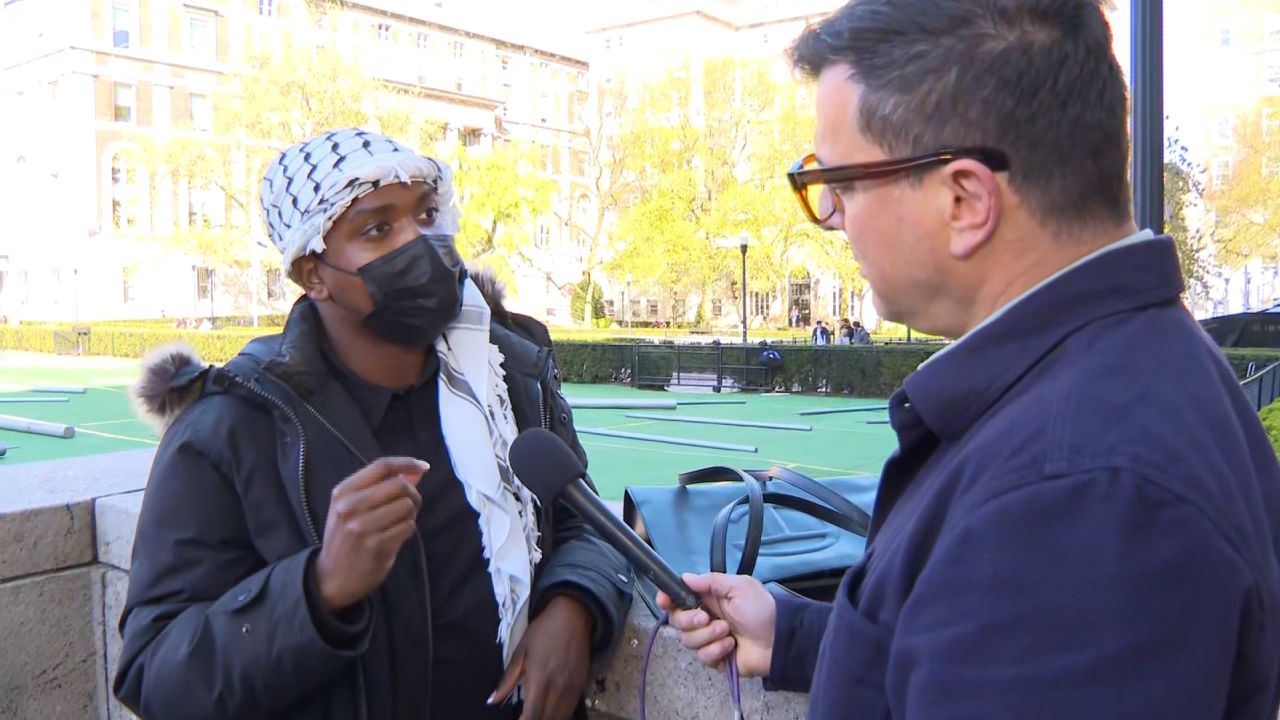Pro-Palestinian protests continued at major US universities through Friday evening decrying Israel’s bombardment of Gaza.
Throughout the week, several schools called police on protesters, leading to the arrests of hundreds across the country. Protesters have demanded schools divest campus funds from entities connected to Israel.
Israeli attacks in Gaza have killed more than 34,000 Palestinians, according to the enclave’s health ministry. Hamas’ deadly October 7 attack on Israel killed about 1,200 people.
College administrators are facing increasing pressure from lawmakers to rein in protests. At Columbia - the epicenter of the demonstrations - the school’s senate passed a resolution late Friday to investigate the university leadership’s handling of the protests.
Here are the latest developments:
Arizona State University: Police at Arizona State University arrested three people Friday on suspicion of trespassing “in connection with setting up an unauthorized encampment,” a university spokesperson said.
Barnard College: The school said it reached resolutions with “nearly all students who were previously placed on interim suspension” for participating in the protest encampment on Columbia’s campus.
Columbia University: The university banned a student spokesperson for the Columbia University Apartheid Divest coalition who said in January “Zionists don’t deserve to live.” He subsequently apologized.
Denver campuses: At a joint campus for the University of Colorado Denver, Community College of Denver and Metropolitan State University of Denver, around 40 of the approximately 100 people who set up a pro-Palestinian encampment were arrested Friday, the campus said in a statement.
Emory University: Faculty gathered on campus to express concerns about the violent arrests that took place on campus on Thursday, with tenured professors calling for the university’s president, Gregory Fenves, to step down over the decision to call in state and local police to clear out the protesters.
George Washington University: The university said Friday that any student who remains in University Yard may be placed on temporary suspension and administratively barred from campus.
Ohio State University: A total of 36 demonstrators were arrested Thursday night after refusing dispersal orders, according to a preliminary report from the university.
University of North Carolina at Chapel Hill: More than 75 students gathered Friday to set up an encampment at the school, demanding the university divest from corporations that invest in Israel and its military operations.
University of Southern California: School president Carol L. Folt said in a statement the campus has become unsafe and the university will launch an inquiry and take action to protect all USC students, faculty and staff.
University of Texas at Austin: The school has placed the Palestine Solidarity Committee on “interim suspension.” The group organized Wednesday’s event, where over 50 arrests ensued.
Virginia Tech: School officials on Friday issued a statement about an encampment on campus, saying they told protesters the event does not comply with university policy.
Yale University: One letter from the Faculty for Justice in Palestine organization criticized student arrests this week and said faculty are prepared to stage walkouts and boycott Yale’s graduation ceremonies. Another letter denounced Yale’s administration for failing “in your responsibility to protect the Jewish students, staff and faculty at Yale.”








